Newman about the Church as Guardian of Revealed Truth
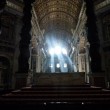 …when Christ had come, suffered, and ascended, He was henceforth ever near us, ever at hand, even though He was not actually returned, ever scarcely gone, ever all but
…when Christ had come, suffered, and ascended, He was henceforth ever near us, ever at hand, even though He was not actually returned, ever scarcely gone, ever all but
 …when Christ had come, suffered, and ascended, He was henceforth ever near us, ever at hand, even though He was not actually returned, ever scarcely gone, ever all but
…when Christ had come, suffered, and ascended, He was henceforth ever near us, ever at hand, even though He was not actually returned, ever scarcely gone, ever all but
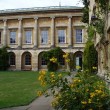 26th August 1832
26th August 1832
“Let us have grace, whereby we may serve God acceptably with reverence and godly fear. For our God is a consuming fire.” Heb. 12:28, 29.
In every age of Christianity, since it was first preached, there has been what may be called a religion of the world, which so far imitates the one true religion, as to deceive the unstable and unwary. The world does not oppose religion as such. I may say, it never has opposed it. In particular, it has, in all ages, acknowledged in one sense or other the Gospel of Christ, fastened on one or other of its characteristics, and professed to embody this in its practice; while by neglecting the other parts of the holy
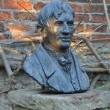 Dear Newman Friends,
Dear Newman Friends,
As we announced last year, from now on you will receive our Newman Newsletter via electronic post. We hope that this way of communication facilitates the exchange of information and experiences among Newman friends.
We are happy to inform you
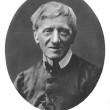 Fr. Hermann Geissler FSO
Fr. Hermann Geissler FSO
One of the most important studies from the pen of blessed John Henry Newman (1801-1890) is the essay, “On Consulting the Faithful in Matters of Doctrine.” The publication of the article sparked fierce debate and is still considered controversial today.
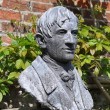
Fr. Hermann Geissler FSO
John Henry Newman’s statements about conscience are among the most beautiful and relevant texts which he left to us. Not by coincidence, he is sometimes called Doctor conscientiae – teacher of conscience.
In the context of a symposium in 1990, Cardinal Joseph Ratzinger – Pope Benedict XVI – told the audience how in his early years at Freising Major Seminary he became familiar with Newman through the Prefect Alfred Läpple. Among other things he said, “For us at that time, Newman’s teaching on conscience became an important foundation for theological personalism,
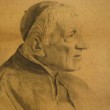
Most Rev. Philip Boyce OCD, Bishop of Raphoe
There has been a continuous ebb and flow of interest in Newman down through the last hundred years. At times the Cause of his Beatification and Canonisation was not considered in any serious way by most people, while at other times it was to the forefront and was worked upon assiduously.
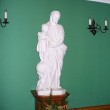
This is one of the titles of the Blessed Virgin, which is especially hers from the time of her Assumption and glorious Coronation at the right hand of her Divine Son. How it belongs to her will be plain by considering some of those other instances in which faithfulness is spoken of in Holy Scripture.
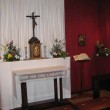
Thomas says to Him, “My Lord and my God.”
1. I adore Thee, O my God, with Thomas; and if I have, like him, sinned through unbelief, I adore Thee the more. I adore Thee as the One Adorable, I adore Thee as more glorious in Thy humiliation, when men despised Thee, than when Angels worshipped Thee. Deus meus et omnia-“My God and my all.” To have Thee is to have everything I can have. O my Eternal Father, give me Thyself. I dared not have made so bold a request, it would have been presumption, unless Thou hadst encouraged me. Thou hast put it into my mouth, Thou hast clothed Thyself in my nature, Thou hast become my Brother,
 Quo ego vado, non potes Me modo sequi, sequeris autem postea.
Quo ego vado, non potes Me modo sequi, sequeris autem postea.
Whither I go, thou canst not follow Me now, but thou shalt follow hereafter.
1. Thou alone, O my God, art what Thou ever hast been! Man changes. Thou art unchangeable; nay, even as man Thou hast ever been unchangeable, for Jesus is yesterday and today Himself, and for ever.
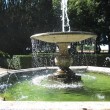
“Why seek ye the living among the dead? He is not here, but is risen.” Luke 24:5, 6.
Such is the triumphant question with which the Holy Angels put to flight the sadness of the women on the morning of Christ’s resurrection. “O ye of little faith,” less faith than love, more dutiful than understanding, why come ye to anoint His Body on the third day? Why seek ye the Living Saviour in the tomb?